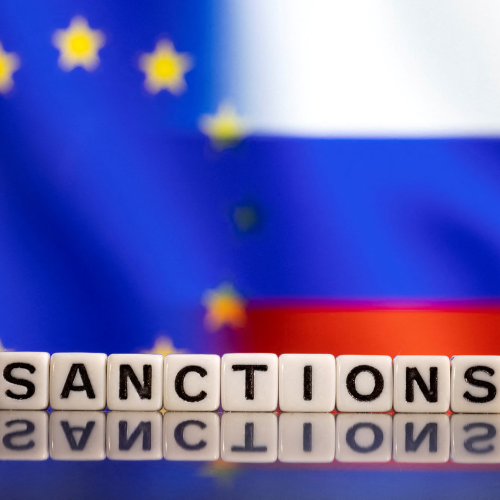The European Union (EU) is set to impose new sanctions on Russian intelligence agents over a series of “hybrid” attacks that have targeted the bloc. These attacks are part of a wider effort by Russia to destabilize the West, according to EU officials. The move comes as tensions between Russia and the EU have reached new heights due to Moscow’s ongoing war in Ukraine.
New Sanctions Against Russian Agents
On Monday, the EU foreign ministers will meet to approve sanctions aimed at punishing Russian intelligence agents and officials involved in these attacks. The sanctions will affect 16 individuals and three entities. Those sanctioned will face visa bans and asset freezes, preventing them from entering the EU and blocking their ability to use any financial assets they might have within the bloc. This decision follows a series of incidents, including cyberattacks, arson attacks, and efforts to influence elections in EU countries, which European officials believe are linked to Russian efforts.
The European Union’s move is aimed at holding Russia accountable for its actions, especially as several EU countries, including Germany, Poland, Lithuania, Latvia, and Estonia, have reported uncovering Russian-led plots. These activities are seen as part of a broader Russian strategy to undermine the stability of European countries and sow discord among them. Among the individuals targeted are those linked to Russia’s military intelligence and other state agencies involved in these covert operations.
Hybrid Attacks: What Are They?
Hybrid attacks are a combination of different tactics used by one country to destabilize another. These tactics often include cyberattacks, misinformation campaigns, sabotage, and other forms of covert activity that don’t involve traditional military combat. Hybrid warfare is meant to disrupt daily life without directly engaging in open war. Russia has been accused of using hybrid attacks against EU countries in recent months, with the aim of weakening support for Ukraine and causing divisions within Europe.
EU’s Hard Hit: New Sanctions Slam Russia’s Secret Fleet and Chinese Firms
In addition to cyberattacks, Russian officials are believed to have orchestrated incidents like arson attacks in several EU countries. These acts of violence and disruption are not only aimed at creating chaos but also at undermining the public’s confidence in their governments. Russian-backed groups are also suspected of trying to influence elections in various EU member states, further deepening divisions within European democracies. These actions, according to diplomats, are meant to reduce the West’s support for Ukraine as the war with Russia continues.
EU’s Efforts to Halt Russian Influence
The EU’s decision to sanction Russian intelligence agents is part of its ongoing efforts to counter Russian influence and limit the Kremlin’s ability to carry out such activities in the future. EU officials say that these hybrid attacks are designed to erode public trust and support for Ukraine, especially as the war continues into its third year. The EU has been one of the most significant sources of support for Ukraine since Russia’s full-scale invasion began in February 2022. Through both financial aid and military assistance, the EU has helped Ukraine defend itself against Russia’s aggression.
The EU is also preparing to impose a 15th round of sanctions against Russia, targeting sectors related to its war machine. These measures are designed to make it more difficult for Russia to sustain its military operations in Ukraine. Some EU member states, particularly those in Eastern Europe, have been leading efforts to introduce even more drastic measures to curb Russia’s influence.
For instance, countries like the Czech Republic have pushed for measures to restrict Russian diplomats from traveling freely around the EU. However, not all EU nations are on the same page, with some, like Hungary, resisting such moves. Hungary has faced criticism for easing visa rules for Russian citizens, which many believe could undermine the EU’s efforts to isolate Russia diplomatically.
The EU’s actions show how seriously it views the threat posed by Russia’s hybrid warfare. By sanctioning Russian spies and intelligence agents, the EU hopes to send a clear message that it will not tolerate attempts to destabilize its member states through covert means. These measures are a part of a larger strategy to protect European security and maintain unity among the EU nations as they continue to support Ukraine in its struggle against Russian aggression.


